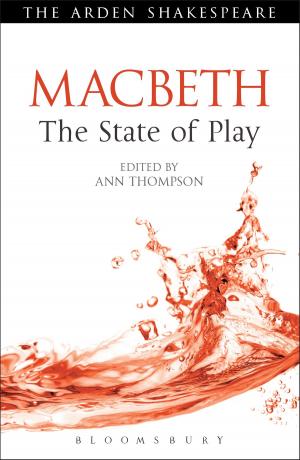Tweed
Nonfiction, Art & Architecture, General Art, Graphic Art & Design, Textile & Costume, Criticism| Author: | Miss Fiona Anderson | ISBN: | 9781474263214 |
| Publisher: | Bloomsbury Publishing | Publication: | December 15, 2016 |
| Imprint: | Bloomsbury Academic | Language: | English |
| Author: | Miss Fiona Anderson |
| ISBN: | 9781474263214 |
| Publisher: | Bloomsbury Publishing |
| Publication: | December 15, 2016 |
| Imprint: | Bloomsbury Academic |
| Language: | English |
The story of tweed is tied to a series of social, economic and cultural shifts that have molded its development. This book considers the historical factors that helped to shape the design characteristics and social meanings of the group of fabrics that we call tweed, from their emergence in the 1820s to the present day. Including significant new research on tweeds, from Harris Tweed to the type used by Chanel, this book follows the history of these fabrics from the raw fiber to the finished garment in men's and women's fashion.
Exploring rural and urban contexts, this book reveals the important physical and conceptual relationships of tweed with landscape. Anderson shows that, contrary to their strong popular associations with tradition, tweeds emerged in the Romantic era as a response to the dramatic changes associated with industrialization and urbanization. Progressive changes in gender relations are also explored as a major factor in tweed's evolution, from associations with particular ideals of masculinity into what is now a truly adaptable fashion textile worn by both sexes. This is the first book of its kind to recognize the importance of tweed to fashion innovation today.
The story of tweed is tied to a series of social, economic and cultural shifts that have molded its development. This book considers the historical factors that helped to shape the design characteristics and social meanings of the group of fabrics that we call tweed, from their emergence in the 1820s to the present day. Including significant new research on tweeds, from Harris Tweed to the type used by Chanel, this book follows the history of these fabrics from the raw fiber to the finished garment in men's and women's fashion.
Exploring rural and urban contexts, this book reveals the important physical and conceptual relationships of tweed with landscape. Anderson shows that, contrary to their strong popular associations with tradition, tweeds emerged in the Romantic era as a response to the dramatic changes associated with industrialization and urbanization. Progressive changes in gender relations are also explored as a major factor in tweed's evolution, from associations with particular ideals of masculinity into what is now a truly adaptable fashion textile worn by both sexes. This is the first book of its kind to recognize the importance of tweed to fashion innovation today.















